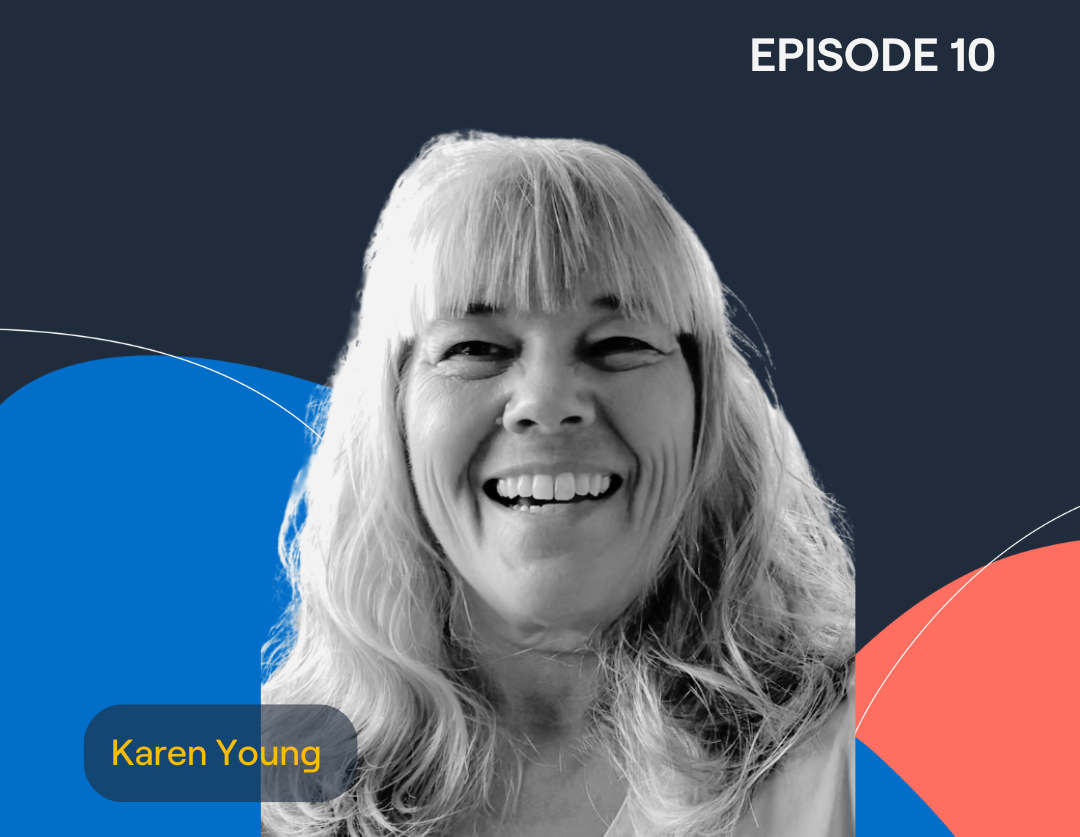Key highlights:
1. Overview of ovarian cancer.
2. Karen’s journey and experience of building the National Ovarian Cancer Coalition (NOCC) and the power of the community
3. The science and symptoms of ovarian cancer; building awareness and education resources for women
About our guests
Karen Young
Karen Young has been working in the nonprofit sector for more than 35 years and has been the Midwest Regional Manager for the National Ovarian Cancer Coalition for more than a decade. Located in Chicago, she oversees six states in the Midwest including Illinois, Indiana, Iowa, Missouri, Kentucky, and Tennessee. Ms. Young is passionate about the work she does with survivors. Ovarian cancer is one of the leading gynecologic cancers for women and is very often diagnosed in the latter stages. There is no early detection test for this cancer and the programs and services that the NOCC provides are crucial for that reason. She enjoys community collaboration to find the most meaningful partnerships to support her teal community.
The Midwest region has quite an array of programs and services available to its survivors and serves over 700 women in the region. Ms. Young has a large corps of volunteers helping to execute programs and services in her area including free meals, free counseling, and financial assistance as well as educational programs and support groups. The chapter offers a variety of opportunities for survivors to meet each other and support one another especially through events like their annual Midwest Together in Teal walk to be held October 15th.
Key Moments
At 2min and 10 seconds:
“Being one of her primary caregivers, and going through that experience, just really gravitated towards wanting to work with a cancer organization. And I knew nothing about ovarian cancer. But it was because of my mom that it interested me.”
At 5min and 20 seconds:
“The pandemic pushed a lot of nonprofits, including us, you know, out of our comfort zone to reinvent ourselves to go virtual with everything and everything that we do. And the simple fact is, we were starting to identify some of the most basic needs.”
At 14 mins and 07 seconds:
“In fact, the reason why the rate is so high for late stage diagnosis is because there is no reliable early detection test at all, hasn't been in years, they're still working on trying to find one. And even though there are tests that you can get if you suspect like let's say you have symptoms and you go and talk to your general doctor or even your gynecologist and you suspect that maybe you have ovarian cancer, there are some things that they can do to verify whether you do or not, but they are not reliable enough to become an early detection test that they would recommend for us annually every year.”
Disclaimer: This podcast blog is for general informational purposes only and does not constitute the practice of medicine, nursing or other professional health care services, including the giving of medical advice, and no doctor/patient relationship is formed. The use of information on this podcast blog or materials linked from this podcast blog is at the user's own risk. The content of this podcast blog is not intended to be a substitute for professional medical advice, diagnosis, or treatment. Users should not disregard, or delay in obtaining, medical advice for any medical condition they may have, and should seek the assistance of their health care professionals for any such conditions.




